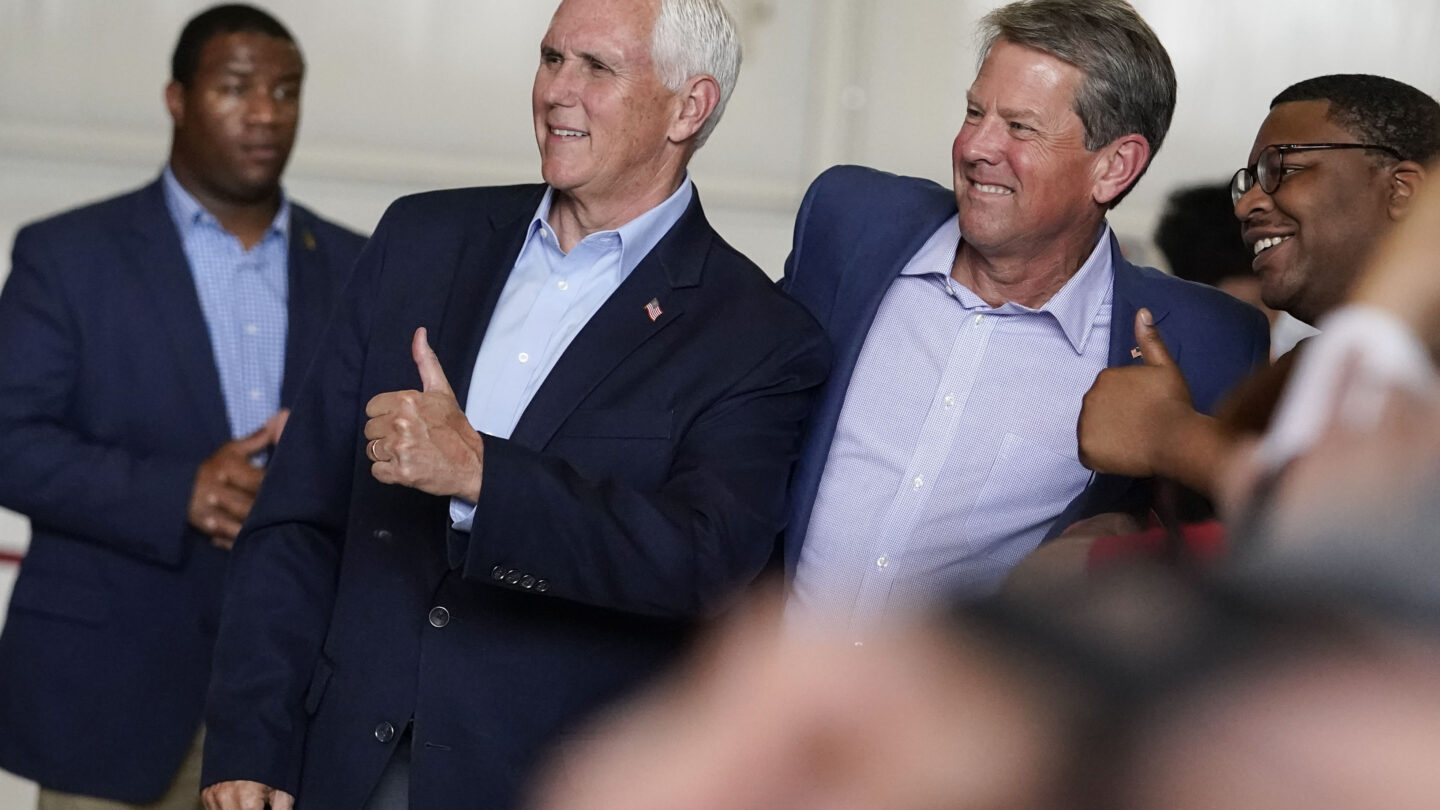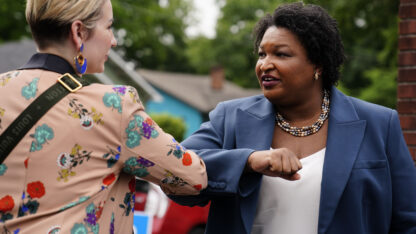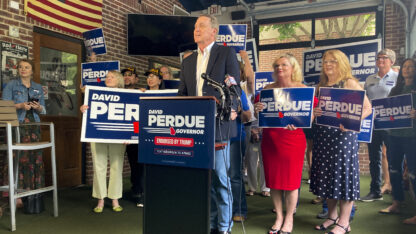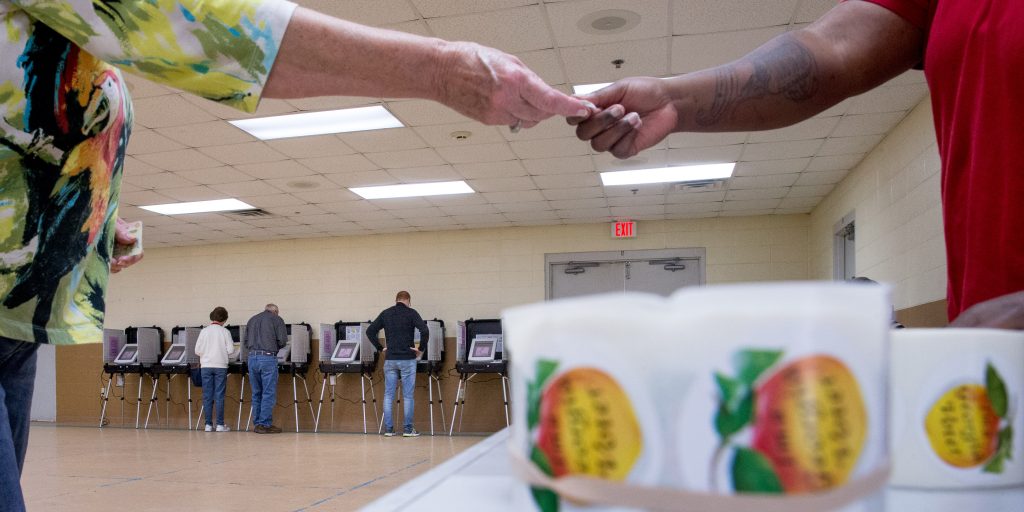Georgia’s Republican gubernatorial primary Tuesday could spell an end to the faceoff between Georgia Gov. Brian Kemp and former U.S. Sen. David Perdue, while Stacey Abrams will be crowned the Democratic Party’s nominee after running unopposed.
More than 850,000 Georgians cast ballots during weeks of early in-person voting. New election rules passed by the Republican-controlled legislature last year made mail-in absentee ballots and ballot drop boxes — forms of voting that were popular during the 2020 elections amid the coronavirus pandemic — a less attractive option, and they nosedived this year.
With three other candidates in the Republican race, it’s possible that neither Kemp nor Perdue will win a majority, requiring a June 21 runoff. Such a scenario could leave the winner with empty pockets. However, polling has shown Kemp extending his lead in recent weeks, raising the possibility that the nomination could be settled Tuesday.
Abrams will be waiting for the winner in a November contest that is likely to be one of the nation’s most expensive and high-profile. She narrowly lost the governorship to Kemp in 2018.
“Four years ago, I warned about the failure that Kemp was going to be. And four years later I am going to prove he was the wrong choice for Georgia,” Abrams said at a news conference Tuesday.
Perdue was personally courted by former President Donald Trump to enter the race as retribution for Kemp not going along with Trump’s effort to overturn his 2020 loss in Georgia to Democrat Joe Biden. Perdue embraced Trump’s election lies, opening two debates between the candidates with the claim that the 2020 balloting was “rigged and stolen.” Election officials found no evidence of fraud after multiple reviews.
Trump conducted an in-person rally for Perdue, sent more than $3 million to two political action committees to pay for ads attacking Kemp on election issues, and kept up a steady stream of rhetorical fire against the incumbent. But Trump has not returned to Georgia since March, and Perdue’s ads have been missing from Georgia television stations for much of the crucial early-voting period.
On his last day of campaigning, Perdue took a shot at Abrams’ remarks Saturday at a Democratic dinner that “I am tired of hearing about being the the best state in the country to do business when we are the worst state in the country to live” going on to explain when Georgia has dismal rankings for mental health access and maternal mortality, “then you’re not the No. 1 place to live.”
“She is demeaning her own race when it comes to that,” Perdue said Monday in an interview with conservative radio host John Fredericks and former Trump adviser Peter Navarro.
“I had an inelegant delivery of a statement that I will keep making — that is Brian Kemp is a failed governor who doesn’t care about the people of Georgia,” Abrams said Tuesday.
“I have listened to Republicans for the last six months attack me, but they’ve done nothing to attack the challenges facing Georgia,” Abrams said Tuesday.
Kemp has used the power of his incumbency to push a raft of bills through the legislature, signing measures that cut taxes, allowed people to carry concealed handguns without permits and let the state athletic association ban transgender girls from high school sports.
The governor also used bountiful state coffers to give pay raises and burnished his economic development record by announcing two large electric vehicle factories.
Republicans rallied to Kemp’s side: He was endorsed by powerful GOP figures including former Vice President Mike Pence and Georgia House Speaker David Ralston.
Kemp’s focus on Georgia issues won over Will Parbhoo, a 22-year-old dental assistant.
“I’m not really a Trumper,” Parbhoo said. “I didn’t like him to begin with. With all the election stuff, I was like, ‘dude, move on.'”
Perdue scrambled for contributions, hitting Kemp on crime and for luring the Rivian Automotive plant to an area east of Atlanta over the objections of many residents.
Abrams has been running for months, seeking to burnish her image among Georgia voters with more than $7 million in advertising, despite the lack of primary opposition.
The centerpiece of her platform remains a call to expand Medicaid to all adults, but Abrams is also highlighting her support for abortion rights and opposition to a law allowing the permitless carry of concealed handguns in public. The Democratic star has shown the ability to raise millions. Meanwhile, Republicans have raised the specter of her becoming governor to try to unify a party fractured by Trump’s attempts to unseat Kemp.
Associated Press writer Jeff Martin in Woodstock, Georgia, contributed to this report.









